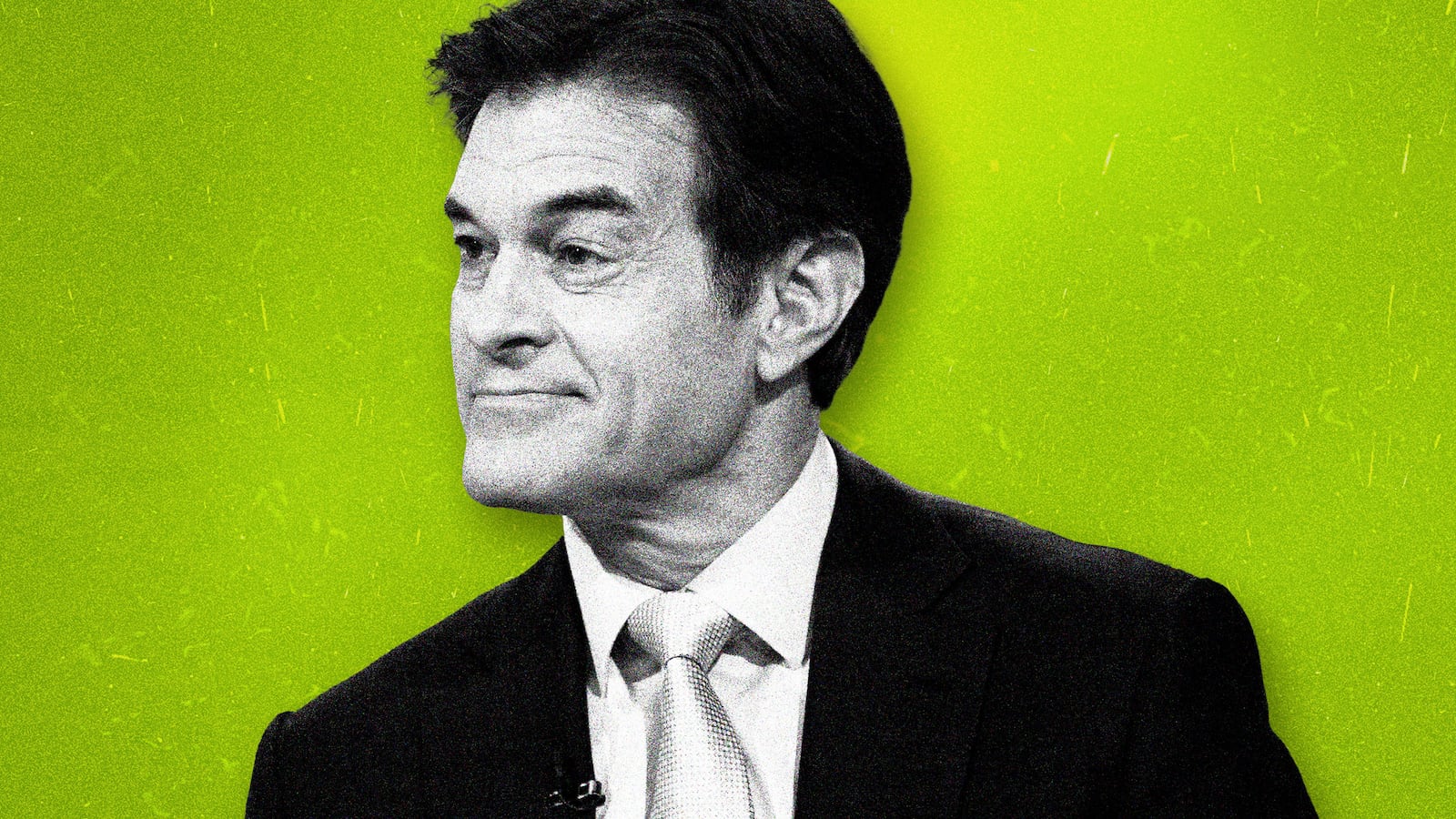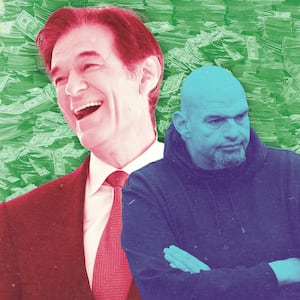After months of the political equivalent of throwing spaghetti against the wall to see what sticks, Dr. Mehmet Oz—Republican nominee for U.S. Senate from Pennsylvania—found the issue to transform his underdog race against Democrat John Fetterman into a newly competitive toss-up.
With crime on the rise almost everywhere, Fetterman’s history of fighting to overturn wrongful convictions as chair of the state’s Board of Pardons provided Oz with enough material to demonize his opponent as “dangerously liberal on crime.”
Oz hired actors who wore prison garb and showed up to disrupt his opponent’s campaign events, and he put up a billboard calling Fetterman “soft on crime” in Braddock—a Pittsburgh-area steel town where Fetterman was previously the mayor. These stunts got headlines, but the real bang for the buck for Oz is the barrage of paid attack ads on television and YouTube that are so ubiquitous a friend told me their 8-year-old asked his mother, “If Fetterman wins, will he release all the criminals from prison?”
Since the beginning of August, 71 percent of Oz’s ads have focused on crime, with more than $8.8 million coming from GOP Super PACs, according to Jessica Taylor, who follows Senate races for the non-partisan Cook Political Report. In these two months, Fetterman’s negatives increased by 17 points, and Oz rose enough in the polls to move the race from “leaning Democrat” in mid-August to a rating change this week to “Toss Up” by the Cook Report.
Did the focus on crime work? “Just look at the money that’s been spent, and that’s a clear correlation,” says Taylor.
Oz had tried other lines of attack, including last month going after Fetterman’s signature clothing of hoodie and shorts—saying it carried a “deeper message,” that “when he dresses like that, he’s kicking authority in the balls.” Duh, yes. The ploy may have found some resonance in the upscale Philadelphia suburbs, but crime is where Oz found the sweet spot in the state’s broader electorate.
Crime has long been a go-to issue for Republicans. The echoes of Willie Horton are loud and clear, when a weekend furlough granted by former Massachusetts Gov. Michael Dukakis went bad, and the 1988 presidential election soon focused on crime. Two brothers who served nearly 30 years for a murder they did not commit (and whose last name coincidentally is Horton) are gainfully employed by Fetterman, who has been slow to recognize the threat posed by the GOP’s all-out assault on this aspect of his record.
“One of the things I believe in most strongly is the power of a second chance, and as the chair of the Board of Pardons in Pennsylvania, delivering that has been one of the things that I’m most proud of,” Fetterman says in a video on his campaign website.
“October is oppo dump time,” says Taylor. We can expect more revelations from both camps as partisans release what they have been holding in reserve to sway the electorate in Pennsylvania for a seat that will likely decide which party controls the Senate. The Washington Post ran a long piece on Oz’s history of dubious health claims, and an article in Jezebel asserts that the medical research that Oz oversaw at Columbia University between 1989 and 2010 killed over 300 dogs, including a litter of puppies, prompting Fetterman to tweet, “BREAKING: Dr. Oz is a puppy killer.”
If it comes down to quack doctors versus rising crime, Oz could gain the edge in this tight race, but dig deeper and you find skepticism about whether the polls have it right. Taylor says pollsters may be undercounting Trump Republicans like they did in 2020 and in 2016. “The numbers we’re seeing for Democrats could be their ceiling,” she says, citing Fetterman, who was at or very near to 50 percent, and is now in the mid-40s.
Robert Cahaly, a GOP strategist who founded the Trafalgar Group, has identified a group that he calls submerged voters. “They’re in their submarines, underwater, and they’re not coming out until Election Day,” he told CNN, calling the Pennsylvania Senate contest a two-point race that will continue to tighten. Based in Atlanta, Trafalgar was one of the only polling firms that called the 2016 election for Donald Trump.
Democrats freaking out about Fetterman’s lost lead can also find solace in the polls. “I have not seen a poll that puts Oz in the lead,” says Bill Galston, a senior fellow in governance studies at the Brookings Institution. In ten polls from the third week of August on, Fetterman leads by an average of 4.3 percentage points. And Oz remains underwater, his unfavorable rating 17 points higher than his favorable rating.
“I don’t see the movement,” Galston told The Daily Beast. Yet he shares the skepticism about the polls. “Is there once again an undercount of Trump voters? who the hell knows—especially after Brazil.” In Brazil’s presidential election, the incumbent, Jair Bolsonaro, was at 35 percent in the polls, and he got 43 percent of the vote, putting him into a runoff where he is favored. “That’s a pretty big miss,” says Galston, calling it “one more example of conservative populist voters not getting counted for various reasons, including not talking to pollsters.”
In the Pennsylvania governor’s race, the Trump-backed candidate Doug Mastriano is way behind Democrat Josh Shapiro. “How many people will turn out to vote for Shapiro and then Oz?” says Galston. “Inquiring minds want to know. It would take a bunch of them to nip Fetterman at the wire.”
Pounding away at the crime issue and scaring voters about what Fetterman might do if elected has made this race competitive but it will take more to close the deal for a clear winner to emerge. We won’t see what that is until the candidates take the debate stage on Oct. 25, two weeks before the final votes are cast.








